- Home
- Steven Brust
The Paths of the Dead Page 40
The Paths of the Dead Read online
Page 40
And it was at just this moment that, not only was she able to call upon those strengths of character that lay latent within her, but moreover, that her strength was forged. That is, not only was the question answered of whether there would be an empire, but the question of what sort of Empress Zerika would make was, at that instant, decided.
Some questions, as is well known, cannot be answered by any historian, be he of a scientific or mystical bent. We cannot know precisely the chain of events that led to the creation of the Great Sea of Amorphia; we cannot know how the Serioli stumbled upon the process that led them to create the first Morganti weapons; and we cannot know from where, ultimately, Zerika found the strength to confront the goddess before her, and through this goddess, all of the Lords of Judgment. But, perhaps, when all is over, it doesn't matter whence came this strength, only that it was there, and that Zerika found it; for she lifted her head (which she had allowed to drop down as she shook and trembled) and said, "All of these matters will be attended to, by the Empire."
"By the Empire?" said Ordwynac again, and, as Zerika turned her head, she found that she was directly in his fiery presence once more. "My little pet, you cannot both create the Empire, and use the Empire to defend it, all at the same time."
Zerika looked into the heart of the flame and said, "That is precisely what I am going to do, however."
"How?" said another of the gods, and she was now in a new direction, and looking at one she recognized from his green, scaly skin as Barlen.
Zerika spoke to him, the words now coming more easily. "The Orb will help. And I have the assistance of Sethra Lavode, which counts for something, I believe. And there are still many who wish for nothing so much as to bring the Empire back. With the Orb, I will summon to me the forces necessary, and do what I must do."
"And have you," said Ordwynac, causing Zerika to stand before him once more, "what it takes to do these things?"
"Yes," said the Phoenix, looking directly into the flames.
"Why should I believe that?"
Zerika felt her eyes narrow slightly, and a certain annoyance begin to grow within her. "Why should you doubt me? And, moreover, of what use is the Orb to you, here?"
"That is not your concern, my dear." said Verra.
Zerika looked at the goddess—whom she was now faring—and refrained from arguing, because it seemed to her that Verra was kindly disposed to her, or, at any rate, to her mission, and she saw nothing to be gained in such an argument. Instead she said, "Very well, then, it is not my concern. And yet—?"
"Well?" said the goddess, not unkindly.
"I am the Heir. By rights, it is mine, and I can do what is needed. If it has no purpose here, then, well, why not permit me to take it where it belongs?"
"It is not so simple, little Phoenix," said one of the gods, and Zerika found that she was now facing the one we know as Moranthë. Zerika looked at the goddess—similar in some ways to Verra, yet different—and waited. The goddess said, "We have one valuable thing that you do not, little Phoenix: we have time."
"I am not certain that is true," said another.
"Whereas," said yet a third, "I am convinced it is entirely incorrect. While we have time, we also know others who have time."
"Yes," came from another. "If we delay, they will not. And what then?"
"Nevertheless," said Ordwynac. "If she is not able to do what she must do, then by putting this artifact in her hands, we are not only leaving their world defenseless, but ourselves, as well."
"Why do you believe," said Verra, "that she will not be able to do what she must?"
"Why do you believe she will?" replied Ordwynac.
Zerika found herself again facing Verra, who looked at her closely, as if, indeed, attempting to see through her. The Demon Goddess then spoke, saying, "She has said she will."
"Then," said Ordwynac, "you will place the fate of the world, and our own fate, on what this human chooses to say of herself?"
"Well, my dear Phoenix," said Verra, addressing Zerika again. "Tell us, if you will, why we should believe you can do what you say."
"Because," Zerika replied with no trace of hesitation, the words spilling forth before she had time to consider them, "I am far too frightened at this moment to prevaricate."
There were various sounds from around her, and it came to Zerika that the gods were laughing. She felt her face become red, but held her ground and continued to meet Verra's eyes. After a moment, Vera nodded slightly, still smiling a little, and said, "I, for one, believe you." Zerika had the feeling that this remark was directed less to her than to the other gods. She remained still, and waited.
"That is all very well," said someone who had not yet spoken. Zerika abruptly found herself listening to a feminine voice and facing what at first she thought was nothing at all until she became aware that there was, perhaps, a certain vague discoloration before her; as if something were almost but not quite there. As she was attempting to decide if something were wrong with her eyes, or if there was, indeed, a goddess before her, she heard the voice again. "But I should very much like to know if you have a plan for how to face these difficulties. That is, a specific plan."
"I do not," said Zerika at once. "I have no plan. I do, however, have resources that I believe will be adequate to the task, and I will, in the first place, marshal these resources. Then I will determine what sort of problems confront the Empire, and I will attack each in its proper place."
"That is not a bad answer, little one," said the goddess whom, by the now, the reader has identified as Nyssa.
"Yes," said Ordwynac. "She is, without question, good with answers."
Zerika looked up at this god, feeling her eyes narrow, and she said, "Words represent thoughts, and I am sharing my thoughts, because they are all I have to hand at present. Give me something stronger than words to wield, and I will gladly do so."
"Indeed?" said Ordwynac. "Little human, do you think to threaten me?"
"Not at all," said Zerika coolly.
"That is good. I am glad to see that at least you do not think to match your strength and resources against the Guardians of the World."
"I certainly do not," said Zerika, and added, "not unless I must."
This remark was greeted by unanimous silence among the gods—a silence that lasted for what seemed to Zerika to be some few minutes. Then, once more, there was the sound of laughter—this time a veritable cacophony of all different sounds of mirth. Zerika maintained her poise like an Issola and waited until the laughter had died away. When, at last, it had, Verra raised her head to address all of the Lords of Judgment. "Are there any other questions from any of you?"
For a moment there was silence, and Zerika dared to hope that, whatever the outcome, her ordeal was over.
But it was not.
Barlen spoke—not to Zerika, however, but to Verra. "You believe her," he said. "Do you think she has the mettle to see it through?"
"I know one thing for certain," said the Demon Goddess. "One thing that cannot be argued with."
"And that is?" said Barlen.
"She has arrived here, over Deathgate Falls, and through the Paths of the Dead."
"Pah," said Ordwynac, or something very like it. "What is involved in that? A few tricks of memory, no more."
Zerika did not permit herself to become angry at this unkind and untrue—or, at the very least, oversimplified—denigrating of her task. Rather she let the anger wash over and past her, knowing that she could not be at her best if in the grip of anger, any more than she could were she in the grip of fear.
Verra said, "Tell me something, my dear little Zerika. How did you traverse the Falls?"
"The Falls themselves? Why, I jumped from them."
Verra quickly glanced across the way toward Ordwynac, and said, "How, you jumped?"
"I did, Goddess."
"But then, why would you have done that?"
"For the simple reason that, as my escort and I were under attack at the
time, there was no other choice."
Verra nodded to Zerika, then looked up and directed a complacent smile at Ordwynac.
At length Ordwynac addressed Verra. "Well then, she has courage. This is not something I have doubted. But courage, by itself, is hardly sufficient, is it?"
Zerika turned and addressed the god directly, saying, "I believe I have more to offer than mere courage."
"Perhaps," said Ordwynac. "But is what you have sufficient? That is what we must decide."
"I have already decided," said Verra.
"Well, that doesn't startle me," said Ordwynac.
"For my part," said Barlen, "I am not far from agreeing with Verra on this occasion."
"Well," said Ordwynac. And then, to Zerika, "What is it you have to offer, that is more than courage?"
"As I have had the honor to tell you, I am Heir to the throne, that is, the only remaining Phoenix. And I have the wit to have arrived here through the Paths of the Dead while yet living. And I have the aid of the Enchantress of Dzur Mountain. And I have the will to do what I have to. All of this you know. What more is needed?"
"I will tell you what is needed—" began Ordwynac, but, by this time, Zerika had had enough.
"Nonsense," she said.
She remained still, feeling the weight upon her of the scrutiny of the gods, and aware of their surprise at the word she had dared to utter.
When none of the gods spoke, Zerika began to do so once more, in this fashion: "I do not know what you are doing, but it is not determining if I should take the Orb. You know—all of you—that I must take the Orb from this place, and that I must—that I am destined to—reawaken the Empire, or to try until I am slain in the effort. You pretend to be evaluating my worthiness, but you are doing nothing of the kind, because I know and each of you knows that there is no other choice."
Zerika paused for a breath.
"So I must ask myself just what you are doing?"
She allowed her glance to cover the entire circle, looking at them all with an unwavering glance.
"I have an answer," she said. "I believe that you not only want me to leave with the Orb, but you—or at least some of you—want me so intimidated that I will put together the Empire as you see it, in the way you wish it, to serve your ends."
She paused.
"This will not be.
"You are the Guardians of the World, and the Lords of Judgment. But I will be the Empress. If there is a thing you wish of my Empire, you may ask me for it, as it always has been, and I will decide, as the Emperor always has. That is how it will be."
She paused, then said, "Now give the Orb into my hands. I have spent too much time here, and I must reach a place of safety beyond this realm before I sleep, and I am very weary."
There was a considerable silence that followed this declamation. So long was it, in fact, that Zerika had time to realize that, in fact, she was every bit as weary as she had said; she was wondering if she would be able to remain on her feet. At that instant, she found that she was looking at one of the gods she had not hitherto confronted. This one appeared to her as a being not unlike a Serioli, a very old Serioli—one with wrinkles and splotches of great age, and whose gnarled hands rested palms up upon thin knees the outlines of which were visible beneath a frail garment of dark blue. And in these hands and upon these knees was an object that Zerika knew at once, though she had never seen it, nor, indeed, heard more than the most cursory description of it.
It was a sphere about eight or nine inches in diameter, and of a grey so dark it was almost black, yet she fancied she could see the faintest sparkles from various points on its surface, as if certain jewels were inside it, their color breaking through here and there. The god spoke softly, saying, "Zerika of the House of the Phoenix, here is what you have come for. Bear it to good fortune." With this, the ancient god extended the Orb, and Zerika took it into her hands, feeling its weight gradually settle. It did not seem especially heavy to her; she judged that it could not weigh more than ten or fifteen pounds.
She stared at the god, uncertain of what to do or to say. It seemed to her that he smiled a little, and she found that she had dropped her eyes, bashful as a girl, and given him a bow.
When she raised her head again, she was no longer in the circle where she had been, but now stood directly before the Cycle itself, which realizing caused in her such astonishment that she nearly dropped the Orb.
When she had recovered a little, she stared at the Cycle, the most ancient and sacred of all artifacts. It was larger in diameter than two men, made of a stone that does not erode, and, perhaps, older than Time. It was close enough to reach—indeed, the symbol of the Vallista was directly before her face—but she dared not touch it. She looked up toward the top, her neck straining, and she saw that, indeed, the symbol of her House, the Imperial Phoenix, was still at the pinnacle, flanked by the Athyra retiring and the Dragon advancing. Here was most mystical of the forces of the universe made tangible. All of the responsibilities of rulership, and all of her connections with other Emperors dating back to her ancestor, Zerika the First, suddenly seemed real and present to her as she studied the massive stone artifact.
We cannot, however we may try, communicate to the reader the emotion experienced by Zerika at this moment. Indeed, we cannot imagine how she must have felt: overwhelmingly weary, ultimately triumphant, tightly holding the Orb and now facing the Cycle itself, that most ancient of artifacts which brought form all the humbleness and pride that is the birthright of any legitimate Emperor.
Soon, as she stood there, she realized that she was not alone. She turned her head, and saw a man dressed in the purple robes of the servants of the dead. Zerika turned to him and waited. The Purple Robe bowed, and indicated with a slow, graceful gesture that she was to follow him. She took a last look at the Cycle, blinking back tears, and set off after him.
She found that they were walking downward along a path of flat stones set into a grassy hillside. The path continued up another hill, this one topped with deciduous trees of some sort she didn't recognize, and also thick with bushes. The Purple Robe remained with her as they reached the bottom of the hill and began climbing. Zerika looked up at what, in fact, was a rather small hill and wondered if she would be able to climb it without assistance. But, she reflected, to receive aid in climbing from a Purple Robe would be, well, it wouldn't be right.
She fixed her eyes at the top of the hill, set her countenance in an expression of determination, and began walking. She felt her hands, holding the Orb, begin to tremble, and clutched it more tightly to her, holding it against her body. She began to take smaller steps as the path rose more steeply, and as she felt her strength deserting her. She glanced over at the Purple Robe who walked next to her, and thought again about leaning against him, but set her teeth and simply continued walking.
Eventually, she reached the trees, and observed that the stones of the path were now set more deeply into the ground, and seemed older. With each step now, it seemed, the forest grew thicker, the path narrower, the stones even older, and she had the sense she was walking backward in time.
The stones at her feet were now cracked. In a few more steps, they were broken, with weeds and grass growing up among them. In not much longer she was walking upon soft grass. At around that same time, she realized that she was alone; the Purple Robe had, somehow, been left behind.
At about this same time, she became aware that the Orb was no longer a burden her hands—indeed, it seemed that it weighed nothing at all. She glanced down at it, and realized that it was emitting a very soft, pale yellow glow. Without breaking stride, she opened her hands. The Orb floated into the air, and began slowly and gracefully circling her head.
At this time she realized with momentary confusion that, not only was there no longer a covering of tree branches over her head, but neither was there a sky; instead, it was as if she stood under a roof of stone. At the same time she detected a musty odor, and overlaying it, familiar scents: gra
ss, pine needles, and wildflowers.
This confusion was, however, as we have said, momentary—she quickly realized exactly where she was. She wondered where Piro and his friends were, and then knew that, too. She became aware of the Enchantress, in her lair at Dzur Mountain, and now she understood much of that most peculiar of abodes as well. And, as she concentrated upon the Enchantress, it seemed to her as if the two of them were looking at each other from only a few meters apart, and it seemed that Sethra Lavode looked into her eyes.
Zerika spoke to her, saying, "It is done."
"Yes," said the Enchantress, permitting herself a small smile. "Now matters become difficult."
"Of course," said the Empress Zerika. "We must move at once. There is no time to delay."
Then the Empress turned her attention to other matters, and Sethra was gone.
Zerika the Fourth, Empress of Dragaera, realized that she was no longer tired.
Some Notes
Toward Two Analyses of
Auctorial Method and Voice
By C. Sophronia Cleebew
Resident Special Faculty,
Dragaeran Studies
How to Write Like Paarfi of Roundwood
1. Always refer to yourself as "we." It is unclear why Paarfi prefers to use the first person plural. He doesn't seem to be speaking jointly for himself and his patron of the moment; neither is he speaking jointly on behalf of himself and Steven Brust. His true camaraderie is reserved for himself and his manuscript, but that doesn't usually prompt a writer to speak in the plural. It may be that he's using the editorial "we." Alternately, he may just have a mouse in his pocket.
2. Do not use "he or she" or "his or her" constructions. The Dragaeran language uses gya to refer to someone of indeterminate sex, thus avoiding these difficulties. Steven Brust has chosen to translate this as "he," "his," and "him," to Paarfi's everlasting dismay.

 Phoenix
Phoenix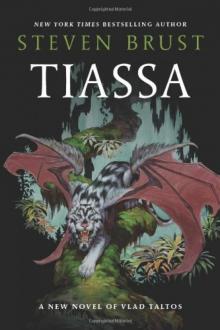 Tiassa
Tiassa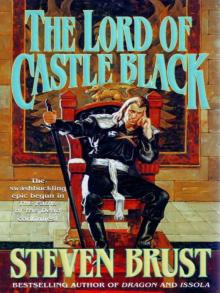 The Lord of Castle Black
The Lord of Castle Black To Reign in Hell: A Novel
To Reign in Hell: A Novel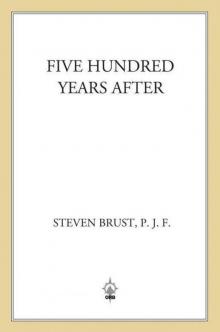 Five Hundred Years After (Phoenix Guards)
Five Hundred Years After (Phoenix Guards)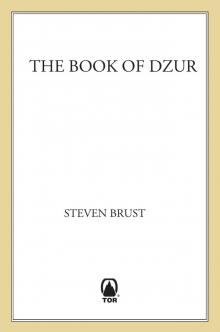 The Book of Dzur: Dzur ; Jhegaala
The Book of Dzur: Dzur ; Jhegaala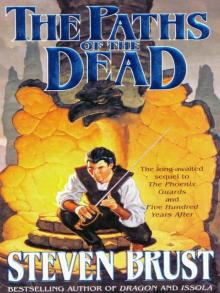 The Paths of the Dead
The Paths of the Dead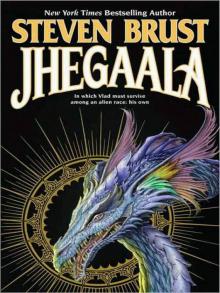 Jhegaala
Jhegaala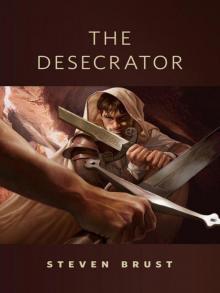 The Desecrator: A Tor.com Original
The Desecrator: A Tor.com Original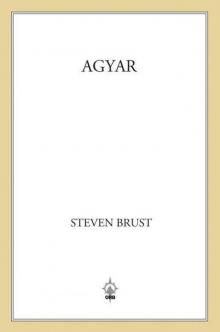 Agyar
Agyar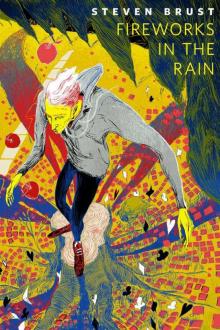 Fireworks in the Rain
Fireworks in the Rain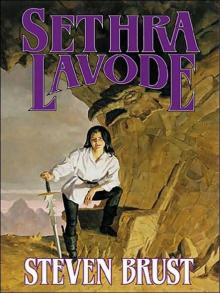 Sethra Lavode
Sethra Lavode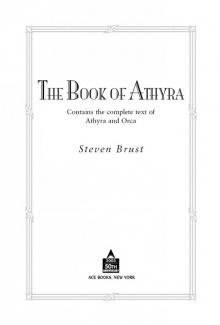 The Book of Athyra
The Book of Athyra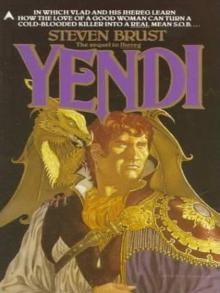 Yendi
Yendi Good Guys
Good Guys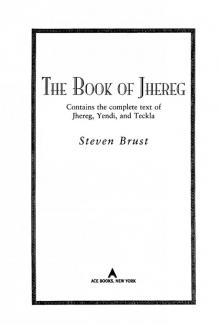 The Book of Jhereg
The Book of Jhereg Cowboy Feng's Space Bar and Grille
Cowboy Feng's Space Bar and Grille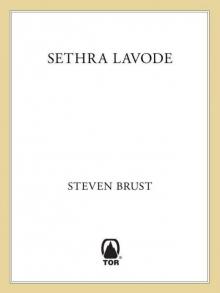 Sethra Lavode (Viscount of Adrilankha)
Sethra Lavode (Viscount of Adrilankha) My Own Kind of Freedom
My Own Kind of Freedom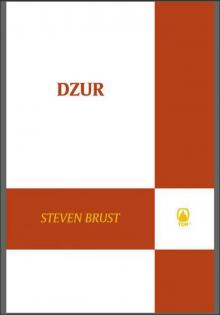 Dzur (Vlad Taltos)
Dzur (Vlad Taltos)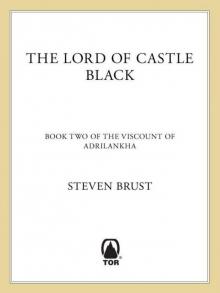 The Lord of Castle Black: Book Two of the Viscount of Adrilankha
The Lord of Castle Black: Book Two of the Viscount of Adrilankha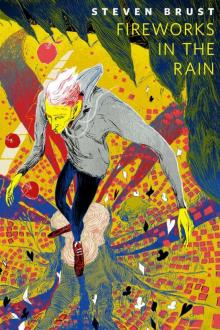 Fireworks in the Rain: A Tor.Com Original
Fireworks in the Rain: A Tor.Com Original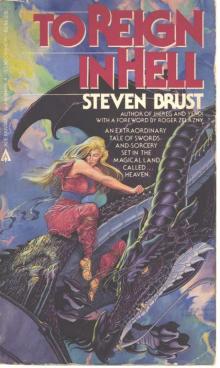 To Reign In Hell
To Reign In Hell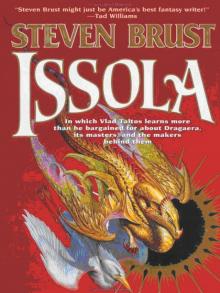 Issola
Issola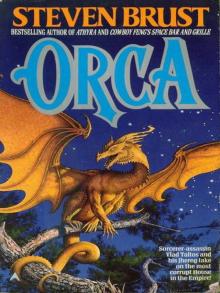 Orca
Orca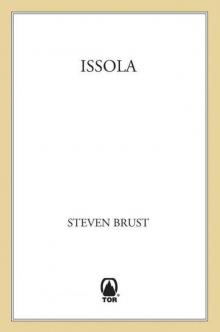 Issola (Vlad Taltos)
Issola (Vlad Taltos)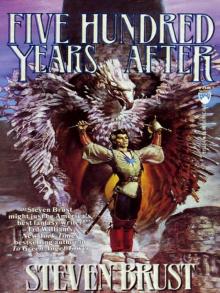 Five Hundred Years After
Five Hundred Years After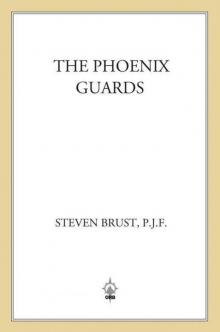 The Phoenix Guards
The Phoenix Guards Taltos
Taltos![[Vlad Taltos 06] Athyra Read online](http://i1.bookreadfree.com/i1/03/24/[vlad_taltos_06]_athyra_preview.jpg) [Vlad Taltos 06] Athyra
[Vlad Taltos 06] Athyra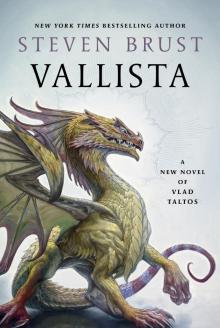 Vallista--A Novel of Vlad Taltos
Vallista--A Novel of Vlad Taltos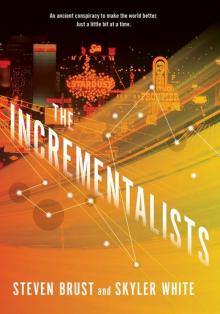 The Incrementalists
The Incrementalists![[Vlad Taltos 04] Taltos Read online](http://i1.bookreadfree.com/i/03/24/[vlad_taltos_04]_taltos_preview.jpg) [Vlad Taltos 04] Taltos
[Vlad Taltos 04] Taltos![[Vlad Taltos 03] Teckla (v 1.1) Read online](http://i1.bookreadfree.com/i1/03/27/[vlad_taltos_03]_teckla_v_1_1_preview.jpg) [Vlad Taltos 03] Teckla (v 1.1)
[Vlad Taltos 03] Teckla (v 1.1)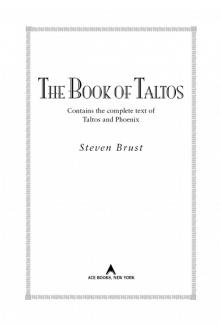 The Book of Taltos
The Book of Taltos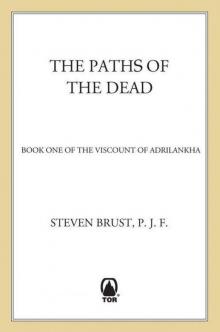 The Paths of the Dead (Viscount of Adrilankha)
The Paths of the Dead (Viscount of Adrilankha)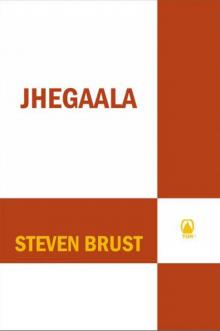 Jhegaala (Vlad Taltos)
Jhegaala (Vlad Taltos)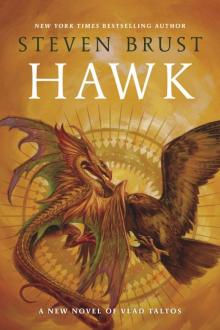 Hawk (Vlad)
Hawk (Vlad)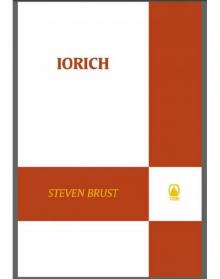 Iorich
Iorich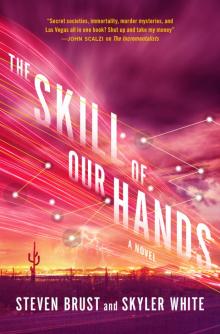 The Skill of Our Hands--A Novel
The Skill of Our Hands--A Novel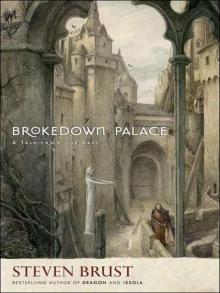 Brokedown Palace
Brokedown Palace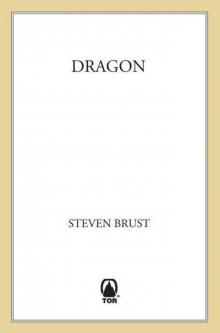 Dragon (Vlad Taltos)
Dragon (Vlad Taltos) Dragon
Dragon Athyra
Athyra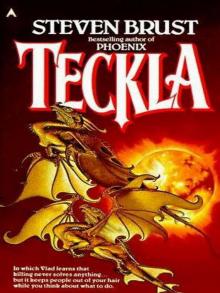 Teckla
Teckla Dzur
Dzur